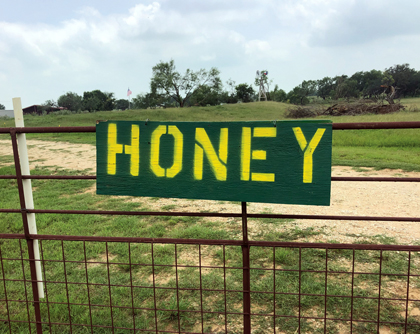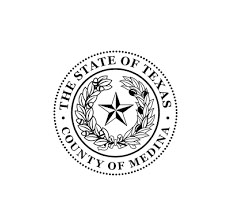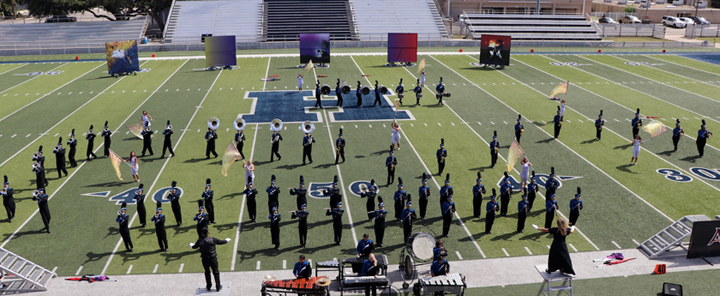By Ashley Vargo
A handheld sensor and innovative technique developed by Texas A&M AgriLife Research scientists could one day offer a noninvasive alternative to food diaries and blood tests when monitoring diet and health.
Using a light-based device, researchers demonstrated that diet, biological age, sex and select nutrient deficiencies could be detected through the skin of live animal models with up to 90% accuracy. The findings, published in Analytical Chemistry, signal a breakthrough in noninvasive health monitoring, including the potential for wearable sensors to provide real-time nutritional and metabolic information.
The researchers believe the technology could help monitor for emerging health concerns and advance personalized dietary recommendations, a key focus of the Texas A&M AgriLife Institute for Advancing Health through Agriculture, IHA.
“Right now, dietary assessments mostly rely on self-reporting, which is often inaccurate,” said Dmitry Kurouski, Ph.D., IHA member and associate professor in the Texas A&M College of Agriculture and Life Sciences Department of Biochemistry and Biophysics. “But with this technology the size of a keychain, we can look directly at how diet changes the body and learn what is and isn’t working at the individual level.”
Diet detection with 90% accuracy
The collaborative project was conducted by Isaac Juárez, a doctoral student in Kurouski’s lab. It builds on findings from David Threadgill, Ph.D., University Distinguished Professor and head of the Department of Nutrition. Threadgill previously performed research on the health impacts of common eating styles, revealing significant differences across diet types.
“We primarily focused on trying to understand how individuals respond to different diets,” Threadgill said. “A lot of data suggests that certain diets are healthier than others, but we don’t know how that translates to the individual level.”
Together, the team repeated Threadgill’s experiment to see if Raman spectroscopy, a light-based sensing technology that Kurouski has used extensively in areas from plant diseases to forensic analysis, could be used to analyze effects of different diets on body composition.
The team fed live animal models one of six common diets, such as vegan, ketogenic and Mediterranean diets, then scanned their skin with Raman spectroscopy to generate a biochemical pattern. The scans identified distinct chemical signatures of key biomolecules, particularly lipids and collagen, linked to each dietary pattern present in the skin.
The result: they found they could distinguish diet type with nearly 90% accuracy.
“For biological systems, anything above 80% is strong,” Kurouski said. “Hitting 90% means this tool could seriously guide nutrition decisions.”
A window into age and nutrient levels
Beyond diet, the scans also revealed age, which they found had a clear relationship to certain chemical markers in the skin, particularly collagen levels.
In further analysis of the scans, the researchers were able to detect folate deficiencies. They collaborated with Michael Polymenis, Ph.D., professor and associate head of graduate programs in the biochemistry department, and Heidi Blank, Ph.D., research scientist, who have extensively explored the impact of folate on metabolism.
“Folate deficiency is linked to birth defects and poor metabolic outcomes, but it’s hard to detect early,” Polymenis said. “Easy access to information on nutrient levels could help guide dietary interventions even before symptoms begin, especially as nutrient needs shift with age.”
Wearables on the horizon
While the current device is handheld, the researchers believe the technology could be miniaturized further and potentially incorporated into wearable technology. Eventually, such sensors could continuously monitor diet and nutrient levels, empowering users with immediate feedback on nutritional status and patterns.
As chronic diseases like obesity and diabetes continue to rise, they hope the technology could offer a proactive tool for improving public health and preventing nutrition-related health conditions.
“This is the beginning of a very exciting journey,” Kurouski said. “Diet and nutrition are critical to overall health and wellbeing. With this technology, we’re essentially able to read metabolism in real time, and someday soon, people might be able to carry this insight in their daily lives.”
Novel technique scans for health cues using light and skin
Dmitry Kurouski, Ph.D., uses spectroscopy to explore everything from human health and nutrition to plant pathology. His innovative technique employing a light-based device to analyze skin composition for health indicators demonstrates just one of the many promising applications of the technology. (Hannah Harrison/Texas A&M AgriLife)









